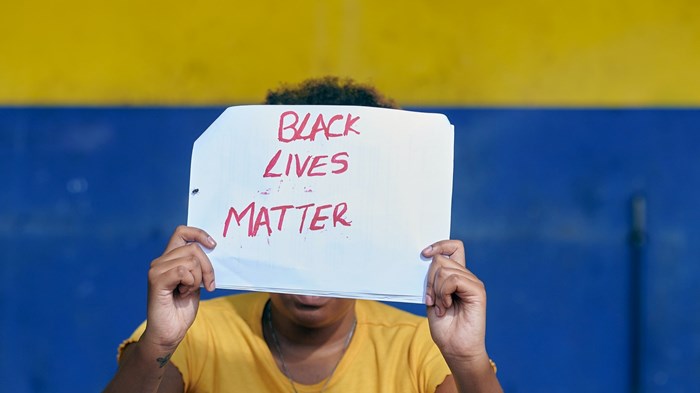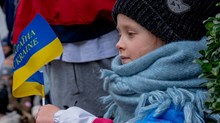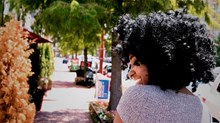Who Is My Neighbor? An Honest Look at the Racism Inside the Ukraine Crisis.

In the last two weeks, millions of people around the world watched as Russia’s army invaded Ukraine. As Russian tanks rolled into the streets of Ukrainian cities, the world witnessed the bravery of Ukraine’s leaders and it’s citizens. Many have been moved towards their cause for liberation and justice. But amidst the crisis, a closer look inside of the country has revealed the ugly, yet familiar face of racism as African, Asian, and Arab people in Ukraine experienced discrimination and harassment at the borders while attempting to leave the country. Black Africans were forced to wait in line for long periods with little to no food or water. They were prevented by police officers from boarding a train, pulled from buses and instructed to walk great distances to cross into neighboring countries, and denied service by Ukranian merchants at local shops.
The people in Ukraine are suffering right now. Last week marked the beginning of Lent starting with Ash Wednesday where millions of Christians around the world grieved the reality and complexity of sin in this fallen world that shows up in so many ways, including war and racism. As a Black man who has lived in the United States my entire life, I have witnessed my country go to war, but I have never experienced the kind of terror that Ukranians have been living through over the last few weeks. Nevertheless, while I do not know about war, and hope I never have to, I do know racism. I, along with millions of others around the world, know all too well the pain that our African brothers and sisters are experiencing at the border. This pain is not merely the pain of personal prejudice, but the destructive dogma and the myth of the superiority and inferiority of certain groups of people. Like war, racism is an immovable facet in our fallen world which must be resisted. When it comes to racism and white supremacy, there is no passport, credential, or jurisdictional border in this world to avoid it.
Which is why it comes as no surprise that #AfricansInUkraine was trending as Black Africans, along with Asian, and Arab people in Ukraine experienced discrimination while attempting to flee the country. Previously these people were welcomed into the county as tourists, students, workers, and neighbors, but, as in many other societies in many different times, in the throes of violence and in the threats of destruction to the nation, the world sees again the ever familiar and powerful phenomenon of racism, the prioritization of a group's interests to the neglect and detriment of others, solely on the basis of a false social construction, race. The black and brown people who formerly appeared to be welcome into the country as free and equal residents, discovered or rediscovered in this moment that to some, they were truly not perceived as equal but inferior, as their fates rested in the hands of white people who determined that they were of less worth than their own.
Beneath these insidious displays of racism is the rhetorical question asked by anyone who believes themselves to be superior to their created inferiors; a question that we see in Scripture, confidently spoken from the lips of a Jewish lawyer looking to justify himself to Jesus, “Who is my neighbor?”(Luke 10:29). Had Russia’s leadership asked themselves this question, there would be no invasion of Ukraine. At the same time, many Ukrainian police officers, soldiers, and citizens both asked and answered this question in themselves in the heightened moments of panic and distress, molded by the old and destructive ideology that white Europeans are superior to all other image-bearers. In this idolatry, one that revealed itself as a reactionary response in the face of some of the worst kind of terror and alarm a human being could experience, they moved one step further down the road of racism, a road, as Martin Luther King said, that’s ultimate logic is genocide.1 This is the irony and irrationality of sin, that while facing the destructive forces of oppression, sinful humans would oppress.
As a Christian, my eternal hope is that God will one day establish a world free from these kinds of destructive evils including war and racism. Isaiah says that on that day, nation will not take up the sword against nation, and they will never again train for war (Isa 2:4). On that day, God will unify and gather around his throne, a multitude of ethnicities and people groups (Revelation 7:9). And until this day, we must work and long for this world to be filled with people who honestly ask themselves the question “Who is my neighbor?”, not as a justification of superiority in themselves or for the creation of inferiority in others, but to ask, listening and learning from the response of Jesus to the Jewish lawyer; Jesus, a man whose family had once fled from the terrors of war inflicted at his birth. We must hear his words, embodied in the display of mercy by the Samaritan on the Jericho Road, “Love your neighbor. Show mercy.” (Luke 10:25-37)
While Russia’s injustice and oppression threatens the nation of Ukraine, we must continue to grieve with our Ukrainian neighbors and stand with them in solidarity. They are created in the Imago Dei and therefore their oppression flies in the face of their Creator. At the same time, because they have been made in the image of God, any seeking to oppress their fellow Black and Brown image-bearers during crisis is equally as heinous before God. As we pray for and pursue mercy and justice for the leaders and people of Ukraine, let us also pray that they would display mercy and pursue justice for their black and brown neighbors. During this moment of war, let us pray that as Ukraine’s leaders pursue peace with their enemy, that they would also avoid conflict and work peacefully in the protection and preservation of every human life within their borders.
Rayshawn Graves is a writer and serves as Director of Mission at Northside Church in Richmond, Virginia.
The Better Samaritan is a part of CT's
Blog Forum. Support the work of CT.
Subscribe and get one year free.
The views of the blogger do not necessarily reflect those of Christianity Today.






















